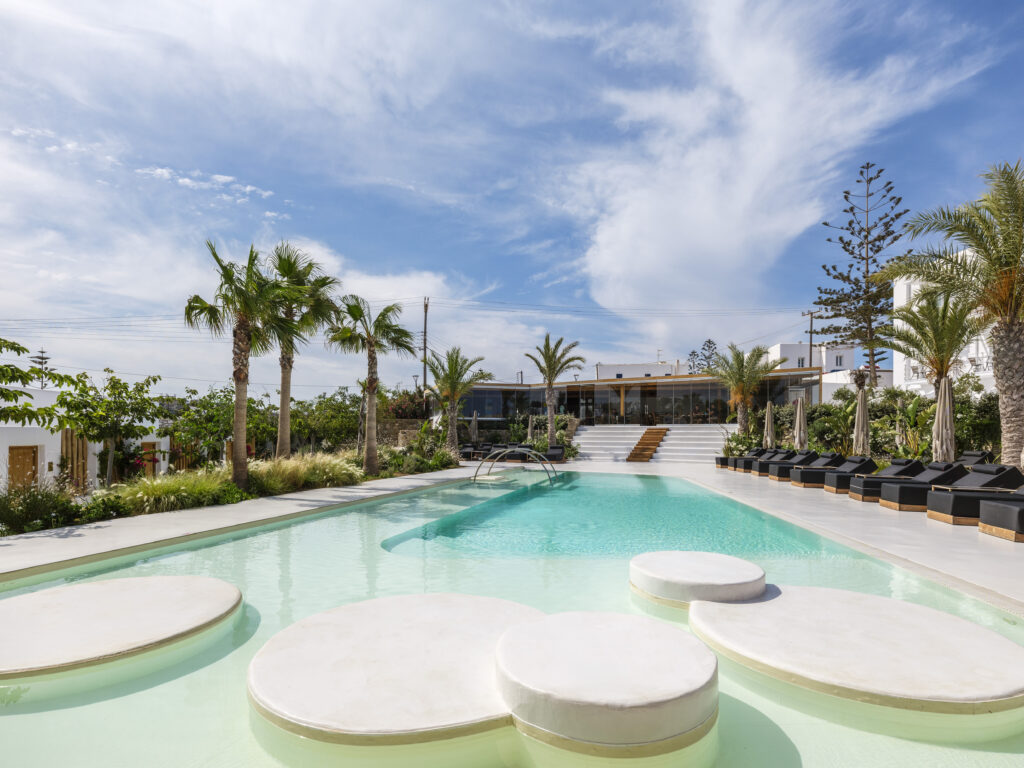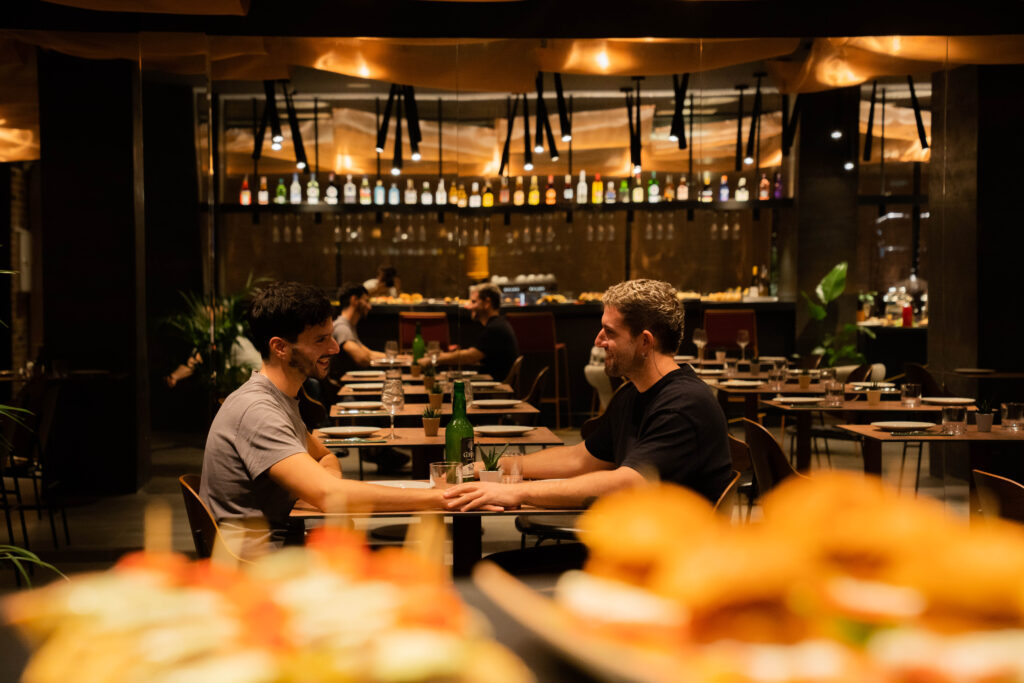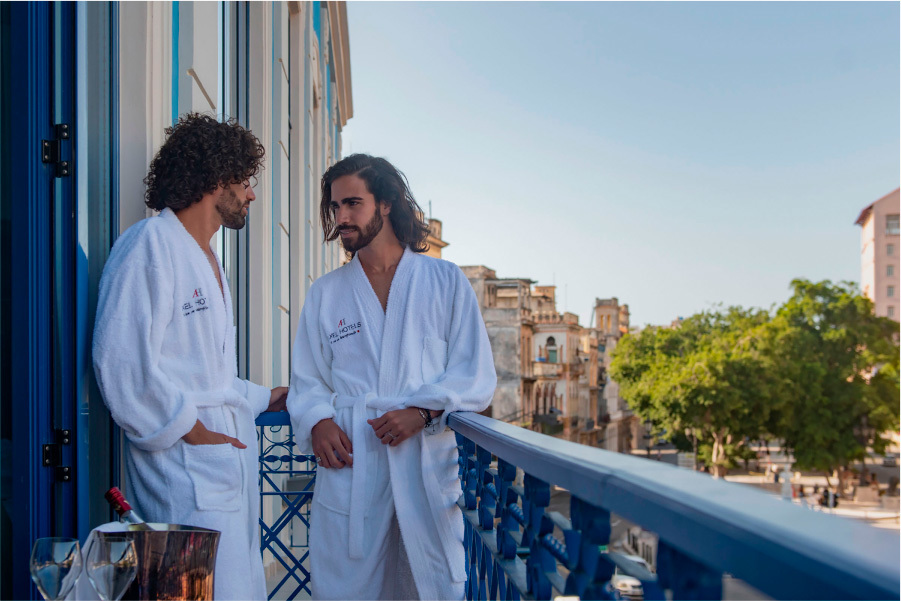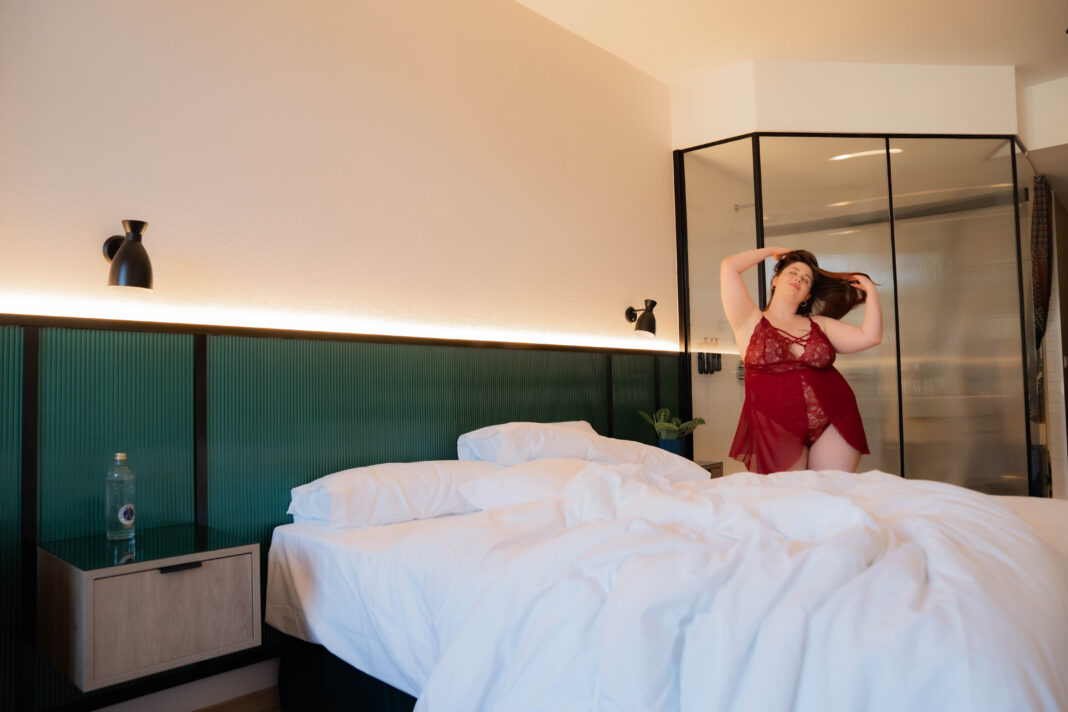Barcelona-based Axel Hotels might have left behind its quirky “heterofriendly” tagline over the years, but the world’s largest LGBTQ+-focused hotel chain still has a gay-centric approach to hospitality.
The company is certainly in expansion mode these days. They’ve opened two new properties in 2025: a 110-room hotel in Bilbao, Spain; and a 31-room hotel in Mykonos, Greece. With plans for two more openings over the next year or so—a 72-room property in Valencia, Spain; and an 80-room property in Porto, Portugal—their empire will grow to 12 properties, covering gay-popular destinations like Berlin, Havana, Ibiza and Maspalomas, their first beach destination. But that’s just the beginning of their five-year expansion plans.

“When we design a new property, we try to reflect the local atmosphere, the local culture, because we want our properties to have very strong personalities. Our guests are usually coming from another country, so they want a real local vibe,” says Silvia Pérez Viñolas, Axel Hotel’s marketing and communications director. “But every Axel property also has common elements and services. They all have to have a Skybar—a rooftop pool that serves as a meeting point for the LGBTQ+ community. A wellness area. The signs and the branding. We want the LGBTQ+ community to feel like it’s their home.”

Founded in 2003 by Juan P. Julia Blanch, and now led by CEO Albert Olivé, Axel’s first property was in Julia Blanch’s hometown of Barcelona. Its marketing initially focused on gay men—think photos of buff models by the pool—but as the company has grown and the times have changed, they’ve embraced more inclusive branding, positioning themselves to be more attractive to the wider queer population—and open-minded straights, too. Though there are still lots of hot guys in the ads, other travellers can now see themselves there, too.
“We want to say now that we are a paradise free from labels and stigmas of any kind. Our hotels are places where you can feel safe and free,” says Pérez Viñolas.
They’ve kept some of the gay naughtiness, though, in the doorknob hangers emblazoned with “Please disturb” as well as more typical ones declaring “Do not disturb” and “Please clean.”
“The community has many other ways of getting together now—apps and the like. But we still keep the sign because it’s iconic and emblematic. We can evolve and be more open, but we don’t want to lose the sense of fun that we’ve had from the beginning,” says Pérez Viñolas.
Style is an important ingredient. The Skybar—always by the pool, always on a rooftop—is a place for spending a relaxing afternoon, meeting a date or, if there’s a party happening, dancing the night away. But each property has to surprise Axel fans with its own unique look and feel. The new Bilbao property employs brick and metal to reflect the industrial heritage of its home city. For breakfast, the location serves pinchos, which are typical small dishes in Spain’s Basque region. (Read our insider’s guide to the best of LGBTQ+ Bilbao here.) The Mykonos property exemplifies Greek island aesthetics with all-white exteriors and interiors—it fits in with its neighbours while providing the cosmopolitan vibe that regular guests expect from Axel.

Over its 22-year history, the company’s ambitions have reflected the ever-changing demands of LGBTQ+ travellers—and the shifting trends of the hospitality industry. The forthcoming properties in Valencia and Porto are capitalizing on the increasing popularity of those cities as gay-friendly destinations, while the Ibiza property, like the island itself, is not quite as gay as it once was. The Miami Beach property, which opened in 2020, closed in March 2025 after the building was sold and the new owners decided they wanted to roll the property into a larger, more mainstream concept. The cost of doing business in gay-friendly neighbourhoods, which are usually also trendy and central, makes it hard to keep the businesses purely gay.
The opening of Telégrafo Axel Hotel La Habana in 2022 was only possible once gay life in Cuba was able to come out of the shadows—the government there has become less homophobic over the last decade or so. Rather than discreetly trying to find the address for the latest gay parties, which often had to change venues, visitors and locals alike knew they could find community at the Axel.

“Cuba can be a tough country to do business in,” says Pérez Viñolas, “but you have a really big LGBTQ+ community there, which had not been recognized, which had been hiding. So it was really meaningful for us to go there, to build a safe space in Cuba for the community.”
Over the next five years, Axel is planning to open 20 new hotels—triple what it has now. So far, they’ve operated all their own properties. To speed up growth, they’re launching a franchise program, where independent operators are given strict guidelines for delivering the Axel experience. International destinations like Amsterdam, Paris, San Francisco, Tokyo and Rio de Janeiro are on the radar, as well as Sevilla, Málaga and Torremolinos in Spain. “We’re definitely looking for something in the U.S., because we really like the U.S. market—U.S. travellers are one of our main markets.”


